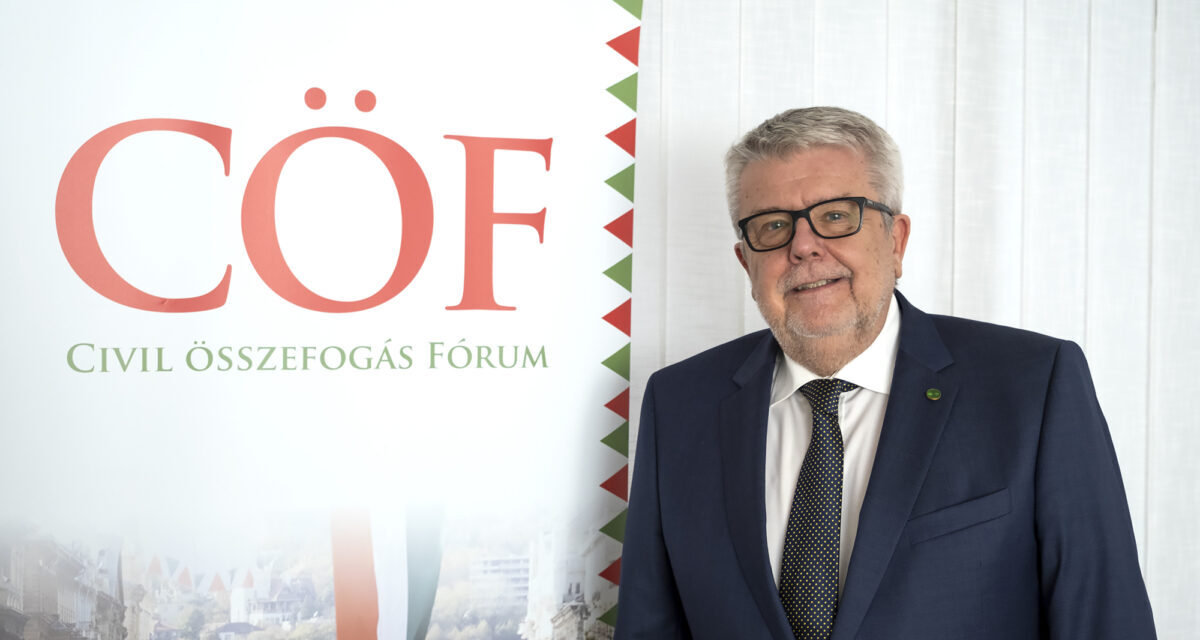In many cases, the mandatory measures coming from the European Union affecting the population of the member states lack the classical concept of democracy. Avoiding the principle of the sovereignty of the people, they do not give the right to have a say in the fate of the people, thus denying subsidiarity. It has become fashionable to assert party political views according to the dominant force. The Parliament eats up legislative issues, the European Commission, misunderstanding its role, imagines itself as a pan-European government. Both organizations do not shy away from dictatorial means either. Inexplicably, the European Council is forced into the role of second or third fiddle.
In many cases, the will of the heads of state and prime ministers who take an oath to lead their people and uphold their constitutional rights in the parliaments of the member countries is broken. In connection with the Union's decisions, the self-serving ideas of some specific organizations prevail, which are suitable for absorbing the power entrusted to the legitimate heads of state of the member states. The enforcement of party political interests becomes asynchronous with the actual will of its voters. This is a problem, since the results of the local parliamentary elections can give real legitimacy, even where the order of power of the parties has been formed under democratic and rule of law conditions in accordance with subsidiarity.
The hierarchy of the European Union's institutional system should in no way deviate from that established in its member states and guaranteed by the electoral system.
If we take the alliance of equal nations seriously, the issues of people's destiny can only be decided by fully empowered heads of state and government. They are at the top of the hierarchy of the European Union's institutional system.
It was not by chance that the right of veto was included in the basic treaty of the European Union, since equality between nations, in addition to freedom of debate, requires consensus decisions to be made. Some states may always have interests that need to be taken into account, but at the same time these can increase the strength of the joint decision. Unanimous decisions made in this way not only strengthen cohesion, but also serve to continuously display the unity of the Union.
Due to the difference in the number of the population living in the member states, as well as the order of power of the parties formed in the local elections, the legality of the decisions differs from those formed in the member states.
The votes of the representatives in the European Parliament are often contradictory and do not reflect the will of the voters of the member states.
In the field of law enforcement, party political battles are taking place in the Parliament of the Union, and different ideologies collide. In connection with this, contradictions between members of parliament, committees and the representative democracy of the member states automatically emerge.
An objective situation can be seen, according to which the European Parliament is independently trying to create original legislation. Given that they exercise their authority in a way that is misinterpreted, a double standard is formed in accordance with the political dominance of the party. In this way, some member states, where democracy and the rule of law are enforced based on the principle of subsidiarity, may come under a judgment that is clearly subordinated to the idealism of the majority in the European Parliament.
Examining the scope of the European Commission's responsibilities, it can be established that there is a misinterpretation of the relevant institutional legislation. The European Commission cannot under any circumstances imagine itself as the government accepted by the member states. The effort to dream of federation plans under the pressure of the EP is clearly visible. They forget that their task is to prepare the laws proposed for implementation by the European Council and the citizens of the community with complete professionalism, leaving out party political elements.
The EU institutional system was turned upside down because it became the bearer of a double standard in accordance with the power relations established in party politics.
The EU's institutional system is designed to meet the needs of citizens' communities. Only heads of state and prime ministers participating in the European Council with a parliamentary background can guarantee this. ET's primacy is given by its reinforced place in the hierarchy. The "rule of law" of the European Union is ensured by the fact that the exclusivity of legislation is concentrated in the European Council. At the same time
it would be advisable to create a Civil Committee to assist their work, which can directly forward opinions from below to the preparation of legislation.
The composition of the Commission could be adopted in the parliaments of the member states in such a way that each member state could delegate one non-party representative.
The time has come, perhaps it is not too late, to prevent for the next five years a broken EU institutional system from being able to live up to the goods produced by the increasingly difficult work of the population of the Union.
The ideas I have proposed should encourage those entitled to consider and change the rules of the 2024 EU parliamentary elections. In my opinion, the key to ending the chaos of the institutional system is the reformation of the electoral law, which is the pledge of the wonderful ideas of the founding fathers.
László Csizmadia
is the chairman of the CÖF-CÖKA board of trustees












